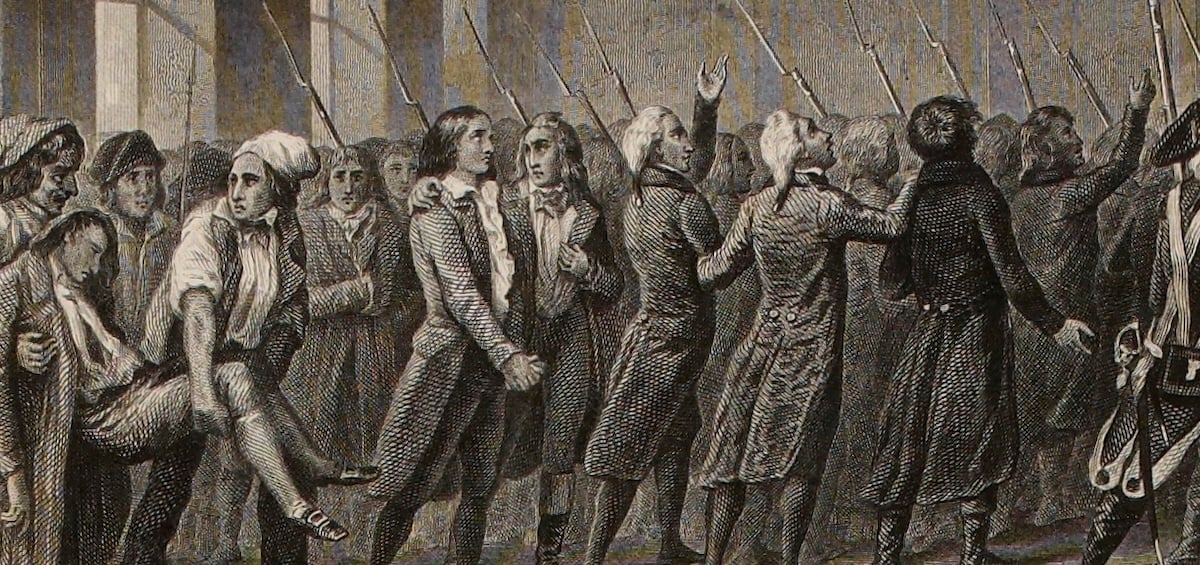Archive
More than thirty-five years of First Things articles at your fingertips
Articles

Hegemon or Empire?
Was the First Gulf War a mistake? The historian Paul Schroeder thought the answer was "yes." In his arresting formulation, Operation Desert Storm was “a just, unnecessary...

How Globalization Led to Tribalism
The recent attack by an Afghan national on two National Guardsmen in Washington, D.C., was not an outlier. Since coming to the United States, Afghans have murdered, attempted to...

The End of Trudeau’s Pseudo-Caesarism
When Barack Obama first won the presidency in 2008, he ushered in a distinctive left-liberal aesthetic of personal power. Young, handsome, eloquent, and black, Obama was cool, and in...

Paleofuturism
Dawn’s Early Light:Taking Back Washington to Save Americaby kevin d. robertsbroadside, 304 pages, $32 When Kevin Roberts became president of the Heritage Foundation in 2021, he set out to...

Actually Existing Postliberalism
Twentieth-century civilization has collapsed. It rested on an essential tenet of liberalism: the state-society, public-private distinction. The state-society distinction reached its apogee in the mid-twentieth century, when the triumph...

Hannah and Her Resisters
We Are Free to Change the World: Hannah Arendts Lessons in Love and Disobedienceby lyndsey stonebridge hogarth, 368 pages, $32 One of the greatest beneficiaries of Donald Trump’s 2016 election...
Abortion and the American Colonization of France
Since the Veil Law of 1975, abortion has been legal in France. Yet for decades, the French could boast that through legislative deliberation, they avoided importing American culture wars...
Fukuyama v. Fukuyama
Liberalism and Its Discontents by francis fukuyama farrar, straus and giroux, 192 pages, $26 To the general public, Francis Fukuyama’s name is synonymous with the “end of history” thesis,...

Spiritual Death of the West
The most important dystopian novels of the first half of the twentieth century are Aldous Huxley’s Brave New World and George Orwell’s 1984. Huxley and Orwell captured the two sides...
What Led to Canada’s Crisis
Last week, the Canadian government invoked the Emergencies Act to break up the Freedom Convoy protests. Officials had accused the protesters—long-haul truckers and citizens gathered in Ottawa to peacefully...
The Irreligious Right
A World After Liberalism: Philosophers of the Radical Rightby matthew roseyale, 208 pages, $28 In a series of short but incisive essays, Matthew Rose, a frequent contributor to First...
The Necessity of Nationalism
After Nationalism: Being American in an Age of Divisionby samuel goldmanuniversity of pennsylvania, 208 pages, $25 Those involved in the debates over American nationalism will find Samuel Goldman’s skeptical intervention,...
The Most Controversial Man in France
Éric Zemmour is the most important media personality in France today. He is also the most controversial. So, in February 2021, when he hinted on television that he was...
Revolt of the Retired Generals
On April 21, twenty retired French generals published an open letter to President Emmanuel Macron and the French government. The letter, which appeared in Valeurs actuelles, calls for France’s...
History Never Ended
History Has Begun:The Birth of a New Americaby bruno maçães oxford, 248 pages, $29.95 Is liberalism giving way to something new? The most notable contemporary case for postliberalism, Patrick...
